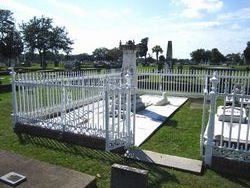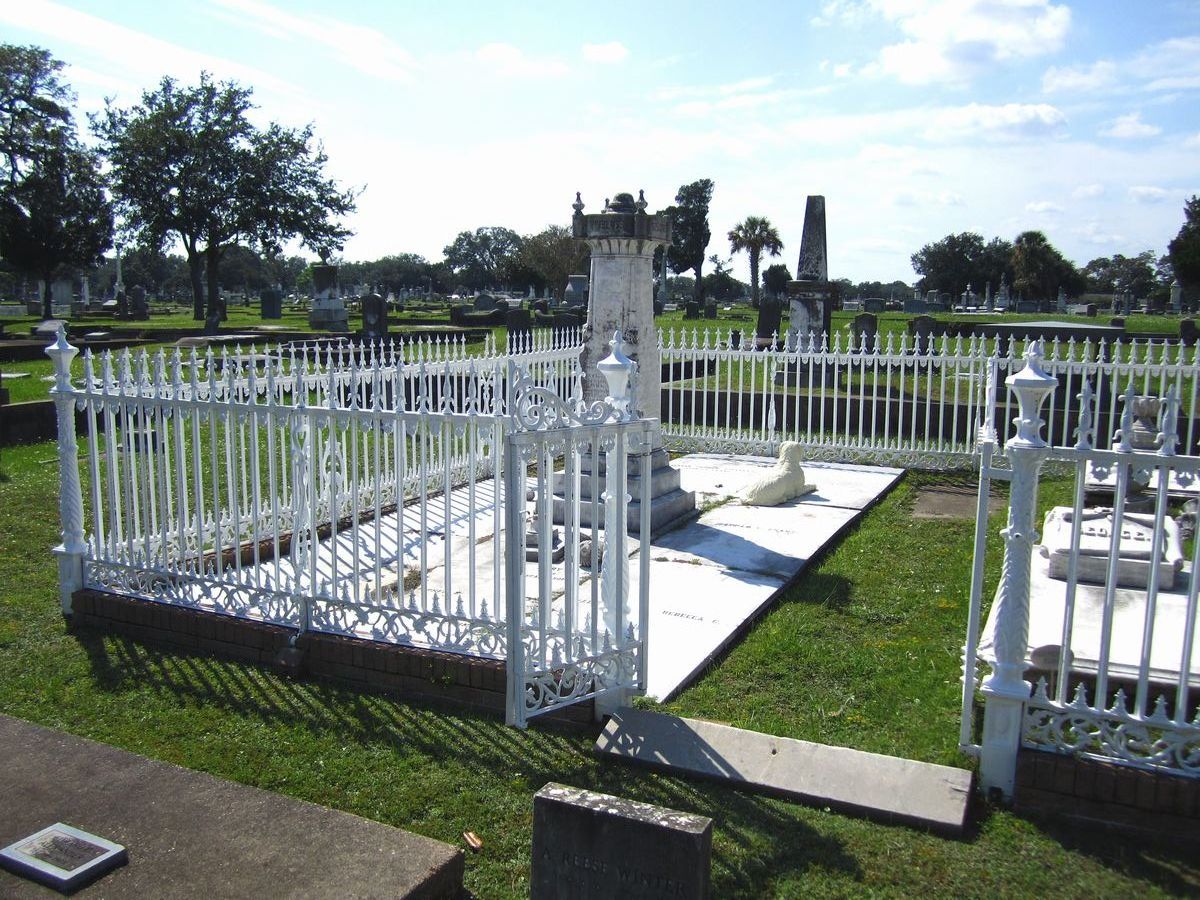Colonel, Provisional Army of the Confederate States (Volunteer), Artillery
First Lieutenant, Army of the Confederate States of America (Regular)
Second Lieutenant, U.S. Army
1st Infantry
Civil War veteran
Killed in Action in the Battle of Spanish Fort
Attended military school in Kentucky
Stationed on the western front to fight Indians
Resigned his commission to join the Confederacy on 17 JUL 1861
My Dear Sir: With deep regret and grief I announce the death of your son William E. Burnet, my Chief of Artillery and my most Christian friend. He was shot through the head and instantly killed, while on a reconnoisance [sic, reconnaissance] in Spanish Fort, in the 31st ultimo [ultimo mense, meaning last month]. We buried him with honors of war yesterday evening. It will be consolatory to you to know that a very general and profound interest was aroused by this great misfortune, and that the honors paid to his remains and to his memory were unusually marked and appropriate. My wife, who esteemed him very highly, and many other good ladies here, took into their charge the sad duties relating to his funeral.
He was buried in the Protestant Cemetery [now Magnolia Cemetery] on Ann Street, in the lot of Mrs. Twelors [sic, Twelves], in whose house he has been quartered ever since he came here. The Rev. Mr. Murray, of the Episcopal Church, conducted the services.
I had gone with Col. William E. Burnet to the Fort, and said to him on parting: "I will return for you in the steamer—remain here as long as you find necessary". I have never received such a shock as when, an hour afterwards, a despatch [sic, dispatch] announced to me his death.
I relied upon him more than anyone. He was a rare compound of excellent qualities. He was the best educated soldier I have ever seen. His information was varied—he was accurate in his reflections and deductions. His courage was of the highest order. He was kind to all—had no antipathies nor prejudices against persons; and was so modest and unobtrusive that only persons of rare discrimination, or who knew him intimately, appreciated him adequately. His death is a loss to his country and comes at a time when I feel it profoundly. I cannot replace him.
His loss is irreparable. When Gen. Beauregard was here, he expressed the highest compliments on him and some important inventions that he had applied to the service of heavy artillery. Accept my sincere and deep sympathy in the bereavement which has fallen upon you, and command my services in any manner whatever.
My little army has now been beseiged [sic, besieged] for ten days by an over-powering force of the enemy—therefore we have held our own well—but the issue none can tell save Him to whose decree we must all bow.
Sincerely and respectfully your friend,
Dabney Herndon Maury
- Letter from Major General Dabney Herndon Maury to David Gouverneur Burnet, Mobile, Alabama, April 3, 1865. Researched and transcribed by R. Boas, FindAGrave.com member number 47304667.
Occupation: Soldier
Cause of Death: Enemy fire (Union marksman)
Aged: 31 years
Buried: 02 APR 1865
Colonel, Provisional Army of the Confederate States (Volunteer), Artillery
First Lieutenant, Army of the Confederate States of America (Regular)
Second Lieutenant, U.S. Army
1st Infantry
Civil War veteran
Killed in Action in the Battle of Spanish Fort
Attended military school in Kentucky
Stationed on the western front to fight Indians
Resigned his commission to join the Confederacy on 17 JUL 1861
My Dear Sir: With deep regret and grief I announce the death of your son William E. Burnet, my Chief of Artillery and my most Christian friend. He was shot through the head and instantly killed, while on a reconnoisance [sic, reconnaissance] in Spanish Fort, in the 31st ultimo [ultimo mense, meaning last month]. We buried him with honors of war yesterday evening. It will be consolatory to you to know that a very general and profound interest was aroused by this great misfortune, and that the honors paid to his remains and to his memory were unusually marked and appropriate. My wife, who esteemed him very highly, and many other good ladies here, took into their charge the sad duties relating to his funeral.
He was buried in the Protestant Cemetery [now Magnolia Cemetery] on Ann Street, in the lot of Mrs. Twelors [sic, Twelves], in whose house he has been quartered ever since he came here. The Rev. Mr. Murray, of the Episcopal Church, conducted the services.
I had gone with Col. William E. Burnet to the Fort, and said to him on parting: "I will return for you in the steamer—remain here as long as you find necessary". I have never received such a shock as when, an hour afterwards, a despatch [sic, dispatch] announced to me his death.
I relied upon him more than anyone. He was a rare compound of excellent qualities. He was the best educated soldier I have ever seen. His information was varied—he was accurate in his reflections and deductions. His courage was of the highest order. He was kind to all—had no antipathies nor prejudices against persons; and was so modest and unobtrusive that only persons of rare discrimination, or who knew him intimately, appreciated him adequately. His death is a loss to his country and comes at a time when I feel it profoundly. I cannot replace him.
His loss is irreparable. When Gen. Beauregard was here, he expressed the highest compliments on him and some important inventions that he had applied to the service of heavy artillery. Accept my sincere and deep sympathy in the bereavement which has fallen upon you, and command my services in any manner whatever.
My little army has now been beseiged [sic, besieged] for ten days by an over-powering force of the enemy—therefore we have held our own well—but the issue none can tell save Him to whose decree we must all bow.
Sincerely and respectfully your friend,
Dabney Herndon Maury
- Letter from Major General Dabney Herndon Maury to David Gouverneur Burnet, Mobile, Alabama, April 3, 1865. Researched and transcribed by R. Boas, FindAGrave.com member number 47304667.
Occupation: Soldier
Cause of Death: Enemy fire (Union marksman)
Aged: 31 years
Buried: 02 APR 1865
Family Members
Advertisement
Records on Ancestry
Advertisement









